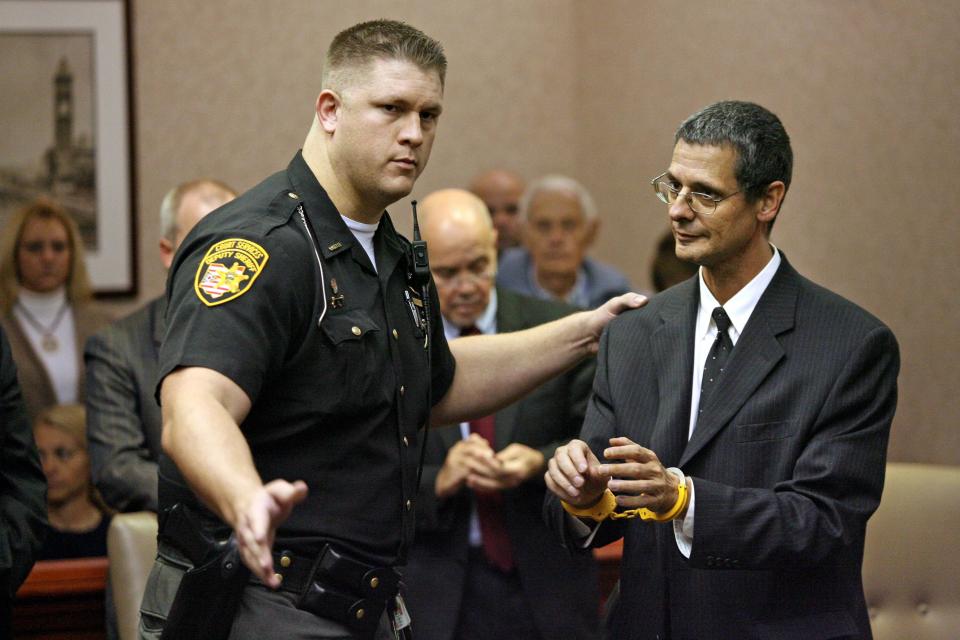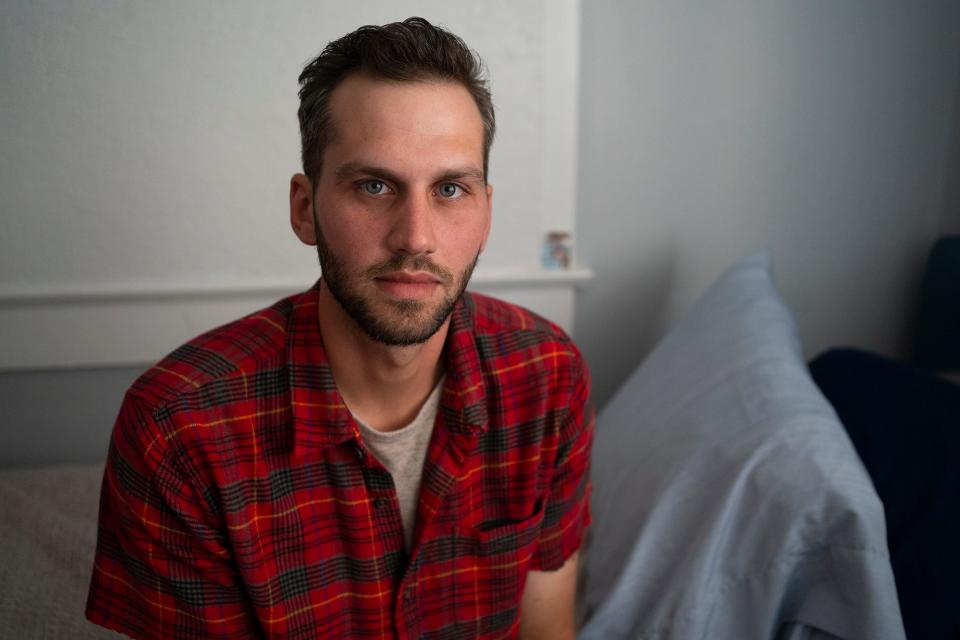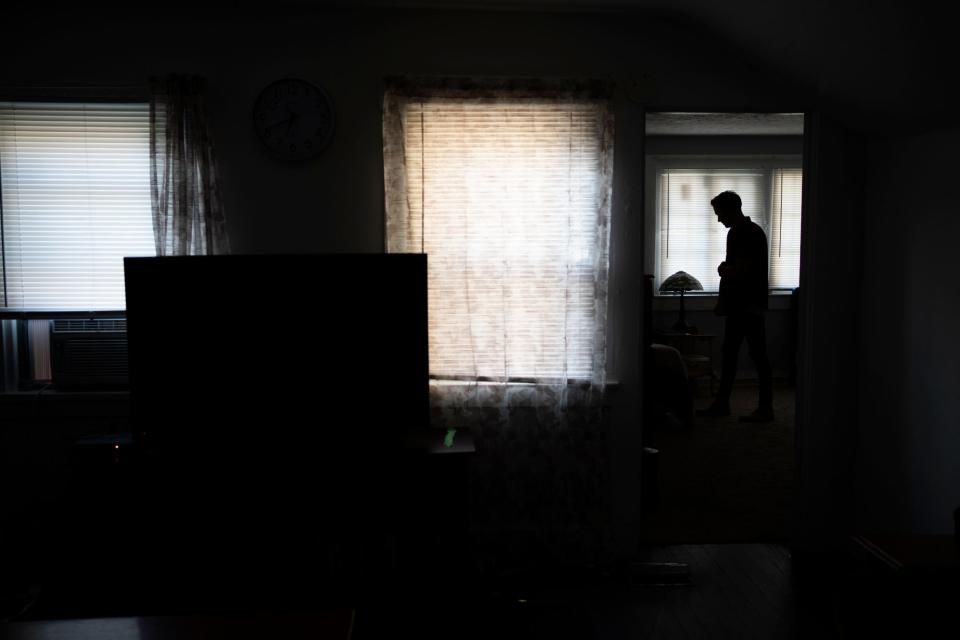Ohio medical schools must 'wrestle with medicine’s dark side' | Opinion
Daniel Skinner is associate professor of health policy at Ohio University, Heritage College of Osteopathic Medicine in Dublin. He hosts Prognosis Ohio, a podcast affiliated with the Columbus-based WCBE.
After four demanding years, students graduating from Ohio’s medical schools will soon learn where they will continue their medical education as resident physicians. They will pursue this next phase of their education with letters of distinction after their names—MD or DO.
Congratulations are in order.
But this year there is a cloud over this moment — Columbus Dispatch’s sobering “Preying on Patients” series. We must address its findings.
Opinion:There's a doctor shortage. Why aren't more medical students landing residencies?
In writing the series, Max Filby, Jennifer Smola Shaffer, and Mike Wagner scoured the archives of the Ohio Medical Board and found that, since 1980, 256 physicians have been disciplined for 449 violations.
Violations included an array of sexual assaults and harassments. The findings are almost certainly the tip of the iceberg. We do not know how many complaints to the board did not result in official sanctions. And we can assume that many harassed and violated patients never filed a complaint.
'Nobody cares': Columbus-area man took his own life after accusing doctor of sexual abuse
In response to the Dispatch series, Ohio’s medical board has taken steps to ensure that reported violations are now dealt with more aggressively and transparently. While acknowledging “we have work to do,” Gov. Mike DeWine has praised these developments, noting, “we're in much better shape today with the state medical board than we were before this whole thing started.”
And yet, one can’t help but notice an inappropriate silence as well.
As I have learned as a medical educator, few people in medical education — from students to educators — subscribe to or read local reporting.
The scandal going under the radar

Only a handful of faculty, staff, and students at Ohio’s medical schools seem to have read or heard about the findings of “Preying on Patients.”
The very people who could learn most from the series — and do the most in reaction to its findings — seem either not to have noticed or have declined to discuss the scandal.
We’ve been here before. The medical profession missed an opportunity to wrestle with medicine’s dark side when the Michigan-based Olympic gymnastics physician, Larry Nassar, was convicted of heinous crimes against his patients. Rather than act and educate, the profession—tail between its legs–was largely silent.
The Dispatch’s findings present another opportunity to get this right. As the Ohio medical board institutes reforms, and the General Assembly prepares to pass legislation, medical schools must act too.
More:Ex-doctor Larry Nassar sentenced to 40 to 125 years for molesting young gymnasts
Medical schools must act

Here’s how they can begin.
Leaders at all Ohio medical schools should declare, with one voice, that scheduled curricular programming will be canceled for one day so that students can read the Dispatch series and discuss it in groups.
Students, who have an interest in ensuring that the medical profession enforces its own rules and ethical standards, should demand that their schools take this step. This day of discussion should signal the beginning of a curricular overhaul that incorporates exposure to, and discussions of, physicians’ historical and contemporary abuses of power.
More:'He deserved worse than what he got': Circleville doctor may have abused 150 patients
Medical schools shape the ethical orientation of future physicians.
Ohio’s medical schools owe it to the people of Ohio to not only ensure that their students have read “Preying on Patients,” but also have considered what the series’ findings mean for their futures.
Finding time to discuss the series with physicians-in-training would be an act of long overdue responsibility-taking for teaching medical students that they are obligated to protect their patients and to report colleagues who abuse patients to the state medical board.
We must understand how predator doctors slip through the cracks.

Most physicians are committed professionals who take their responsibility to patients seriously.
We need to take a close look, however, at the long educational path that produces physicians — through medical school and medical residency to medical practice — to understand how the physicians who abuse patients are able to proceed through many years of medical education to the trusted profession of physician.

There is no easy way to predict which physicians will become predators. But Ohio’s medical schools can make clear to their students what is expected of our state’s physicians and the consequences for those who violate their oaths.
Our view: 'Doctors have our ultimate trust.' Ohio must stop those who prey on patients
Medical schools, from admissions to graduation, are the beginning of a decade-long educational trajectory. Medical educators play a critical role, setting the tone and expectations for a lifetime of medical practice. Whether medical school leaders have the courage to face their responsibility to address the dark corners of their profession, a profession that wields such enormous power that some of its members can abuse the vulnerable with impunity, is a decision each medical school leader must make.
Given the urgency of the task at hand, however, I end with a direct appeal to Ohio’s graduating medical students. The root of physicians’ power is the trust patients have in them.
Again, congratulations to the members of the Ohio medical school classes of 2023.
But, before you get to work as licensed physicians, take time to reflect on the huge responsibility that awaits you. And demand that your medical school does a better job of educating medical students about the power and responsibilities physicians have to put patients first.
Daniel Skinner is associate professor of health policy at Ohio University, Heritage College of Osteopathic Medicine in Dublin. He hosts Prognosis Ohio, a podcast affiliated with the Columbus-based WCBE.
This article originally appeared on The Columbus Dispatch: Ohio medical schools must 'wrestle with medicine’s dark side' | Opinion

